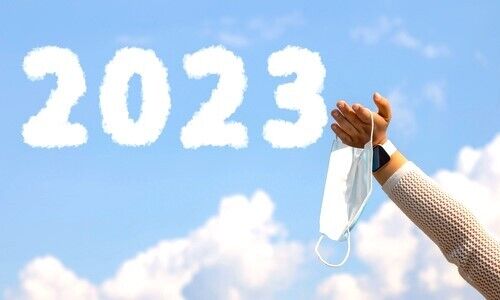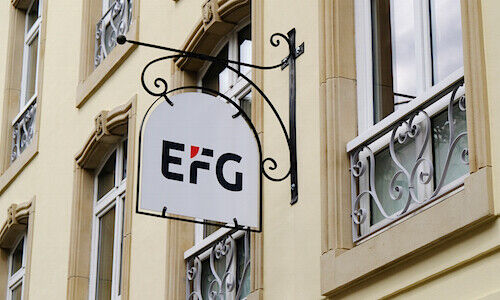Just Like that, Hong Kong Makes Covid Disappear
In parallel with the mainland, the city eliminates most pandemic restrictions. But will financial industry workers and tourists come back?
In what seems like the blink of a positive PCR result, we go from the threat of being shipped to the Penny Bay quarantine facility to having the Hong Kong government simply send over a plastic bag packed with Panadol, medicaments, face masks - and lateral flow tests.
The bag, which includes the requisite yet likely somewhat redundant thermometer for the now duly downgraded patient, is a sign of the new pandemia. Or how zero-Covid, as the policy was dubbed on the mainland, becomes no Covid in one fell swoop.
Still, as we nurse ourselves to health in isolation at home, we should be grateful. The finews.asia prediction made last September has turned out to be completely wrong.
Two Down
The city no longer faces a new normal of near-permanent quarantine, testing, tracing, and mask-wearing, and fears of just a year ago that the strict policy then in force might last until 2024 has not aged well.
At least two of the factors mentioned above, quarantine and tracing, are out, at least for the time being. And it also seems like testing is on the wane, with one of the main government PCR testing centers on Hong Kong island recently downgraded from being a relatively elaborate, albeit temporary, set up in an indoor gym to a few hardscrabble tents placed roughshod, almost forlorn, on an outdoor basketball court.
Still, are there deeper implications to the new normal the city is now living in?
Difficult Question
A key question on everybody’s mind is whether they will return. The prosaic they meaning those teams and functions in the financial industry that have decamped to greener pastures in Singapore and further afield in the very long intervening meantime. And tourists.
The quick, unprompted answer is likely to be - not immediately. At least if the abnormally quiet streets, bars, and restaurants between Christmas and the New Year are anything to go by, even though there are rumors that bookings from mainland tourists at certain leading hotels are already at capacity.
In the medium term, it depends on the strength of the pandemic payback many countries are likely to exact, as exemplified by some of the steps taken by Japan against travelers from the mainland in a finews.asia comment last week.
Testing Wastewater
Many countries have since jumped on that bandwagon, with the US, UK, Belgium, and Malaysia saying they will or intend to start doling out some kind of Covid test on airline wastewater from flights that arrive from China, among other potential measures.
The WHO seems to be taking a harder tack as well, emphasizing in a statement released just before New Year’s Eve the importance of the «timely publication of data», asking scientists from the mainland to present detailed data on viral sequencing by Tuesday - or today.
The organization also mentioned it is ready to provide support twice in the same brief statement. This can only be seen as something of a comedown, given how China has steadfastly maintained that its approach has kept severe cases and death rates among the lowest in the world.
What Comes Around
In truth, this all feels like a bit of a political quid pro quo, particularly if anyone remembers the anal swab tests for foreigners of two years ago and the widespread fears being fanned in Hong Kong and the mainland that infections were being imported by way of overseas frozen food, among many other waves of manufactured panic.
Hong Kong may feel some of that blowback, although this is likely to be a temporary effect, at most a medium-term one. The longer-term question is more likely to be determined by something else entirely. Whether businesses feel like they can hire staff locally and transfer them from abroad, unhindered and with little interference or delay by the government.
The answer to that, in truth, is still up in the air.




























